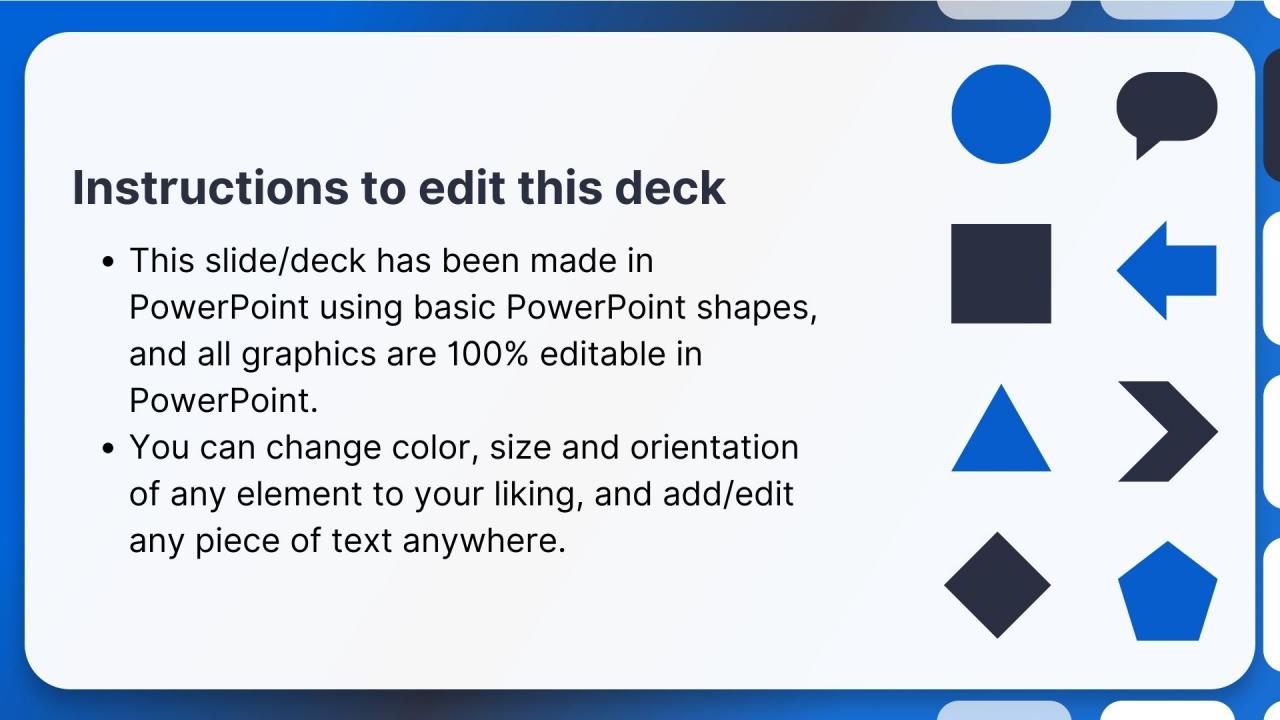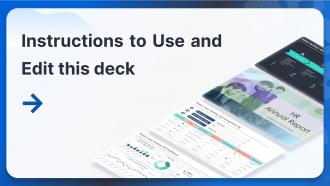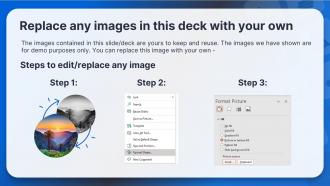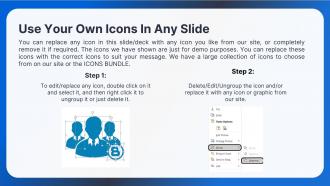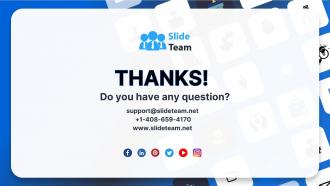Security Challenges And Solutions For Hotels Training Ppt
These slides highlight the security concerns hotels face and associated solutions. The issues are guests privacy, unexpected thefts, unauthorized visitors, cybercrimes, and security system crashes.
You must be logged in to download this presentation.
 Impress your
Impress your audience
Editable
of Time
PowerPoint presentation slides
Presenting Security Challenges and Solutions for Hotels. These slides are 100 percent made in PowerPoint and are compatible with all screen types and monitors. They also support Google Slides. Premium Customer Support available. Suitable for use by managers, employees, and organizations. These slides are easily customizable. You can edit the color, text, icon, and font size to suit your requirements.
People who downloaded this PowerPoint presentation also viewed the following :
Content of this Powerpoint Presentation
Slide 2
This slide represents the security concern of guests’ privacy at a hotel. The techniques to ensure guests privacy are: Avoiding too much personalization, knocking thrice by pausing in between, announcing the department, not knocking, if privacy sign is displayed on the board, and registering under fake name.
Instructor’s Notes:
Following are the techniques by which hotels can ensure their guests’ privacy:
- Avoid Too Much Personalization: While offering personalized services, hotels should avoid getting too personal by asking creepy questions. For example, they can use birthdays and anniversaries but should never use financial activities or health related conditions while offering personalized services
- Knock Thrice, Pausing in Between: Knocking at the guest's room should be done in a normal pitch, with a pause of 10-15 seconds. It should be done thrice before entering the guest room
- Announce the Department: Right after knocking on the door, the hotel staff should announce their department name so that the guests are aware of who is at the door
- Do not Knock the Door, if Privacy Sign is Displayed: The hotel staff must respect the sign that guests display outside their rooms. The sign could be a "do not disturb" or "privacy please"
- Registering Under Fake Name: For celebrities and popular personalities, the hotel can, upon checking their original IDs and proofs, can register them under fake name to meet their demand for privacy
Slide 3
This slide contains information about the security concern of unexpected thefts at the hotel. Guests, themselves, or even the hotel staff could be responsible for thefts at hotel.
Slide 4
This slide represents the ways to lower the number of theft incidents at a hotel. These could be by installing CCTVs, making use of technology, cleaning room in presence of guests, extensively checking room before guests check out, imprinting hotel’s name on inventory and regular scanning of visitors and staff.
Instructor’s Notes:
Techniques to minimize thefts at hotels are:
- Install CCTVs and Make Use of Technology: Install CCTVs and anti-theft devices in the hotel, such as RFID (Radio Frequency Identification)-based equipment to control thefts
- Clean Occupied Rooms in Presence of Guests: Generally, cleaning of the rooms is done in the absence of guests. It is always advisable to ask guests when their rooms can be cleaned in their presence
- Extensively Check the Room Before Guests’ Checkout: The hotel front-office should ensure thorough checking of every room during checkout and ask guests to wait till the housekeeping team confirms that no hotel items are missing
- Imprint the Hotel’s Name on Inventory: Branding the inventory is again a way to avoid thefts, as guests hesitate to steal branded amenities fearing ridicule. Also, branding acts as proof if they are caught sneaking away with the hotel's belongings
- Properly Scan Visitors and Staff: It is important to properly scan visitors, the staff, and their baggage when they leave hotel premises. Extra vigilance has to be kept on a suspicious person
Slide 5
This slide contains information about the security concern of guests’ antisocial behavior at a hotel. The violence between guests, vandalism, threatening behavior, and sexual harassment against staff are common anti-social behaviors encountered in the industry.
Slide 6
This slide contains information about the security concern of unauthorized visitors at the hotel. Unauthorized visitors are those who do not have actual or implied permission to be on the hotel premises. They violate guests’ privacy and can be a threat as their intentions are unclear.
Slide 7
This slide contains information about how to deal with unauthorized visitors at the hotel. Firstly, ask the person if they are the hotel’s guest, then ask for their room key and finally let them know the hotel’s policies regarding the use of facilities.
Slide 8
This slide lists security concerns on employees’ safety at a hotel. These are harassment and violence, electrical safety, hazardous chemicals, and lone working.
Instructor’s Notes:
Safety concerns for the hotel staff are:
- Harassment and Violence: The act where a person is abused, intimidated, or assaulted in their workplace is violence or harassment. It has become a significant security concern for hotel staff these days. The chances of this occurring are high as alcohol is served to guests till late night hours, with the staff working till late
- Electrical Safety: The occurrence of electrical hazards is high at a hotel. A hotel is full of small and large electrical equipment with varying voltage supplies which could prove fatal for both the staff and guests, if not managed systematically and carefully
- Hazardous Chemicals: Hazardous chemicals that are used in the hospitality industry could be in the form of washing-up liquids, rinse-aids, drain-cleaning products, dishwasher detergents, and disinfectants. These chemicals could be corrosive and can cause skin burns if splashed onto the body
- Lone Working: In hotels, staff work in rotational shifts that can lead to a hotel employee working alone without direct supervision which can be a safety concern, especially for the female staff
Slide 9
This slide highlights the measures that hotel must deploy to ensure employee safety from harassment and violence, electrical appliances, hazardous chemicals, and concerns over working alone.
Slide 10
This slide highlights the security concern of cyber security at a hotel where a hacker breaks into hotel management system can extract hotel’s as well as guests’ private data for illegal activities.
Instructor’s Notes:
The types of cyber-attacks that hotels might be exposed to are:
- Dark Hotel Hacking: Dark hotel hackers first gains access to a hotel's Wi-Fi system. Then, they forge digital certificates, convincing victims to download a malicious software that peeps into their private information. This is specifically done to target high-profile guests
- DDoS (Denial of Service) Attacks: In a DDoS attack, the hacker targets the hotel's computer system. The hacker tries to bring down the entire computer system by flooding the server with internet traffic. Then, the victim may be threatened with a devastating attack to make him pay ransom
- Phishing Attacks: The term phishing means sending or receiving impersonated emails that aim to trick the victim and push them to reveal sensitive information such as log-in details, credit/debit card details, passwords etc
- POS (Point of Sales) Attacks: A point of sale (POS) or payment card attack is a third-party crime that involves the vendor rather than the hotel itself. The attacker may take out money from guests’ account
- Ransom Ware: Ransom ware is a malware that threatens to publish data if the victims fail to pay to have the data restored. Machines are infected with a virus that encrypts the computer’s data
- Malware: Malware is spying software that can enter the computer when the target-victim opens email attachments, downloads software, or opens pop-up links. It can access and destroy the computer's data and, infect it with viruses, delete or install files on its own
Slide 11
This slide highlights preventive techniques to avoid cyber crimes at a hotel such as using up-to-date browsers, software and regularly scanning hard drives for any malware or virus.
Slide 12
This slide highlights the security concern of overwhelmed security systems at a hotel, wherein electronic security gadgets like fire and smoke alarm systems, access control, CCTVs, etc., become unmanageable if there is an ineffective IT team in-charge of these.
Slide 13
This slide represents measures to handle crash of security systems at a hotel. These are constructing a de-centralized system, outsourcing security systems, and employing technical experts.
Instructor’s Notes:
Techniques to handle overwhelmed security systems at hotel are:
- Construct a Decentralized System: A decentralized security system makes information security everyone’s responsibility with its emphasis on building a strong culture of security and data protection. For hackers too, it is not that easy to infect a decentralized system
- Outsource Security Systems: An outsourced security system at the hotel would be able to more effectively maintain the antivirus software, run necessary updates and protect the hotel from IT security threats, since they must have dealt with hospitality businesses before
- Employ Technical Experts: Hotels can hire technical experts to secure data networks, and prevent security breaches
Slide 14
This slide highlights the security concern of high audit costs at hotels due to huge gap between the number of qualified security auditors and the mushrooming of new hotels.
Security Challenges And Solutions For Hotels Training Ppt with all 33 slides:
Use our Security Challenges And Solutions For Hotels Training Ppt to effectively help you save your valuable time. They are readymade to fit into any presentation structure.
-
I downloaded some of the presentations for work. They were simple to modify and saved me a lot of time and effort.
-
Thanks to SlideTeam, we have an ideal template to present all the info we need to cover. Their slides give our numbers and projections a more clear and enchanting look.






























